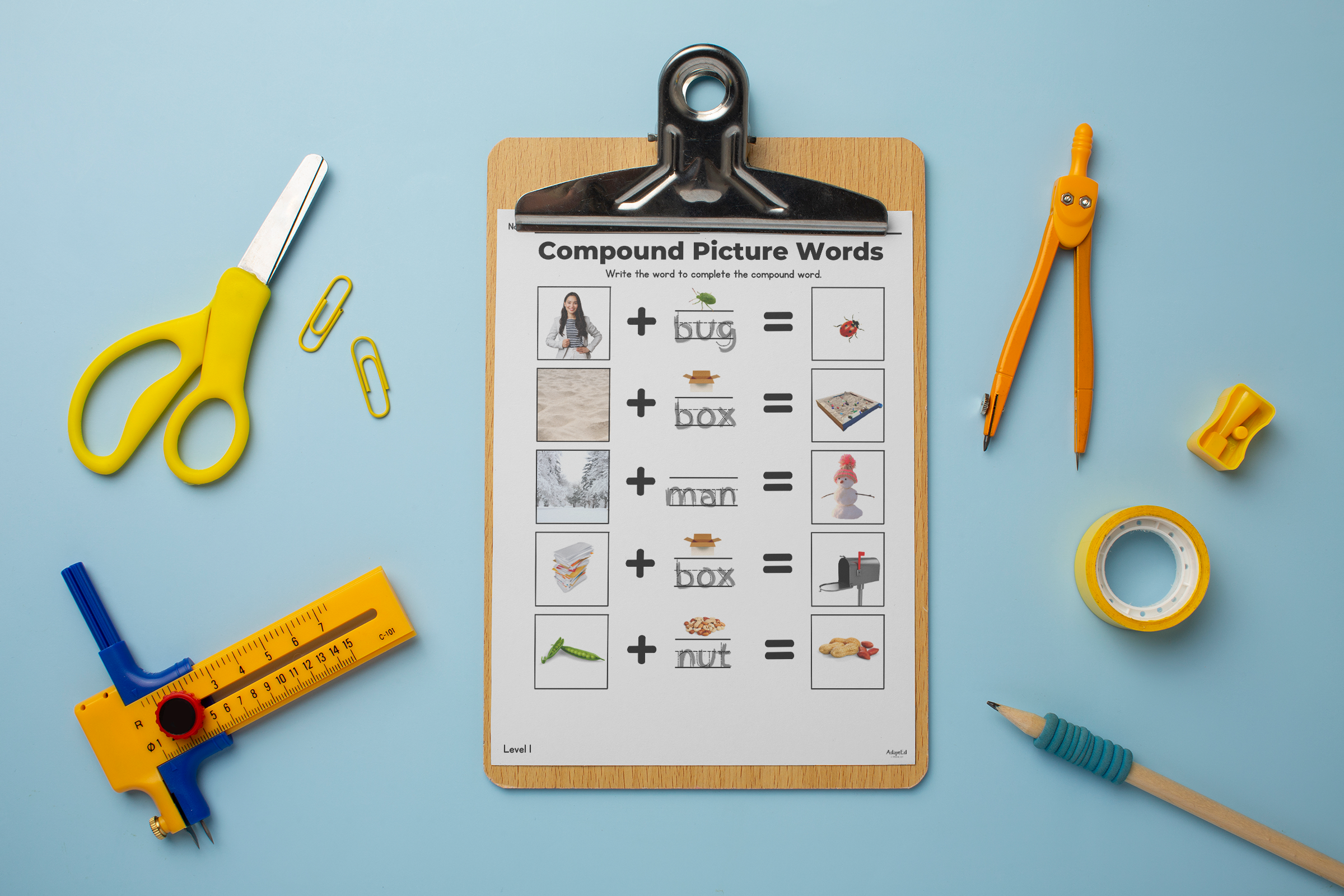For non-verbal students, learning to read can be a challenging and isolating experience. However, by incorporating compound word practice into their curriculum, teachers can help these students develop essential reading skills in a fun and engaging way.
According to Dr. Karen Erickson and Dr. David Koppenhaver of the Center for Literacy and Disability Studies at the University of North Carolina at Chapel Hill, "non-verbal students are often able to learn to read when provided with appropriate support" (Erickson & Koppenhaver, 2007).
This support can come in many forms, including targeted instruction on phonics and vocabulary.
Compound word practice is an effective way for non-verbal students to develop their phonemic awareness skills, which are crucial for reading success. As explained by literacy expert Dr. Timothy Shanahan in his book "Teaching Phonics Today," "compound words offer an opportunity for students to practice blending sounds together in a meaningful context" (Shanahan, 2016).
Moreover, learning about compound words can also help non-verbal students develop their vocabulary knowledge. As noted by education researcher Dr. Susan Neuman in her article "The Role of Vocabulary Instruction in Early Literacy Development," "compound words provide opportunities for expanding vocabulary knowledge by building on familiar base words" (Neuman, 2009).
By learning about the meaning of each individual part of a compound word, non-verbal students can better understand how new words are formed and expand their overall vocabulary.
Alternatively, educators may also incorporate technology-based resources like our Compound Word App which features interactive games that reinforce understanding and retention of concepts learned during lessons.
It's important to note that when incorporating compound word practice into curriculum for non-verbal students, teachers should tailor lessons to meet each student's individual needs. Educators may need to adapt teaching methods based on each student's level of understanding and communication abilities.
In conclusion, empowering non-verbal students with reading skills through compound word practice is an effective way to improve academic outcomes while promoting independence and confidence. By using targeted teaching strategies such as hands-on activities or interactive games like our Compound Word sets, educators can create an engaging and inclusive learning environment that helps all students reach their full potential.
Sources:
- Erickson K.A., & Koppenhaver D.A. (2007). Children With Disabilities: Reading And Writing The Four-Blocks® Way.
- Shanahan T. (2016). Teaching Phonics Today: A Primer for Educators. International Reading Association.
- Neuman S.B., & Dwyer J. (2009). The Role of Vocabulary Instruction in Early Literacy Development. Journal of Literacy Research, 41(3), 439–468



